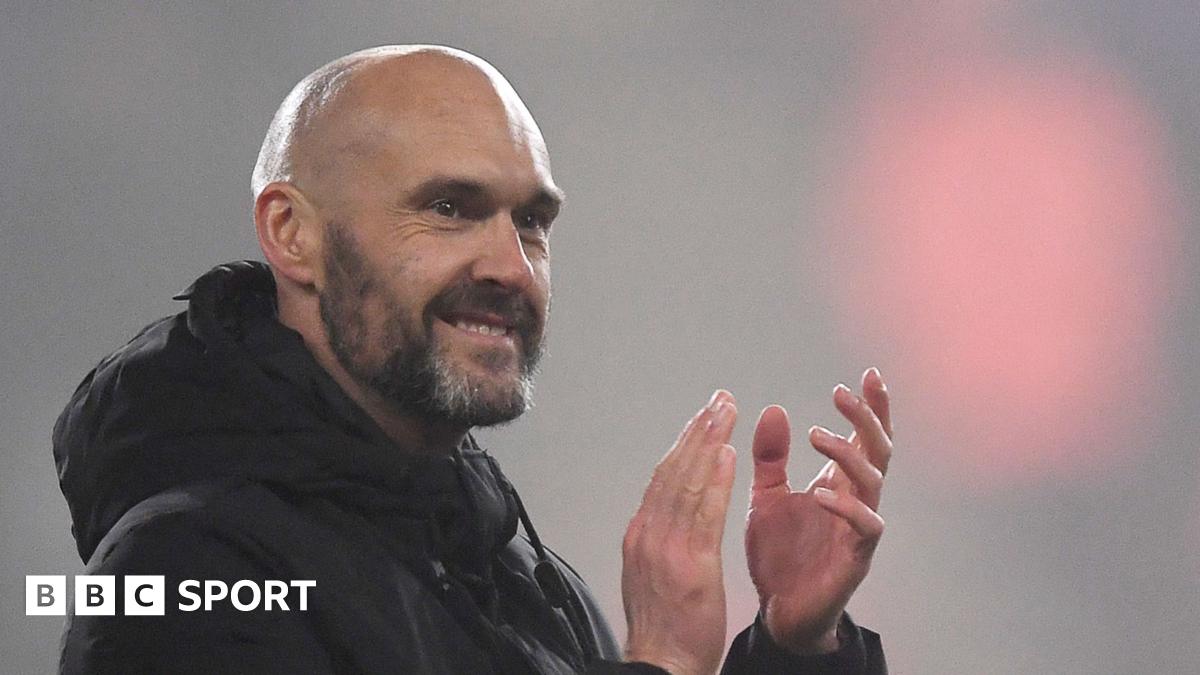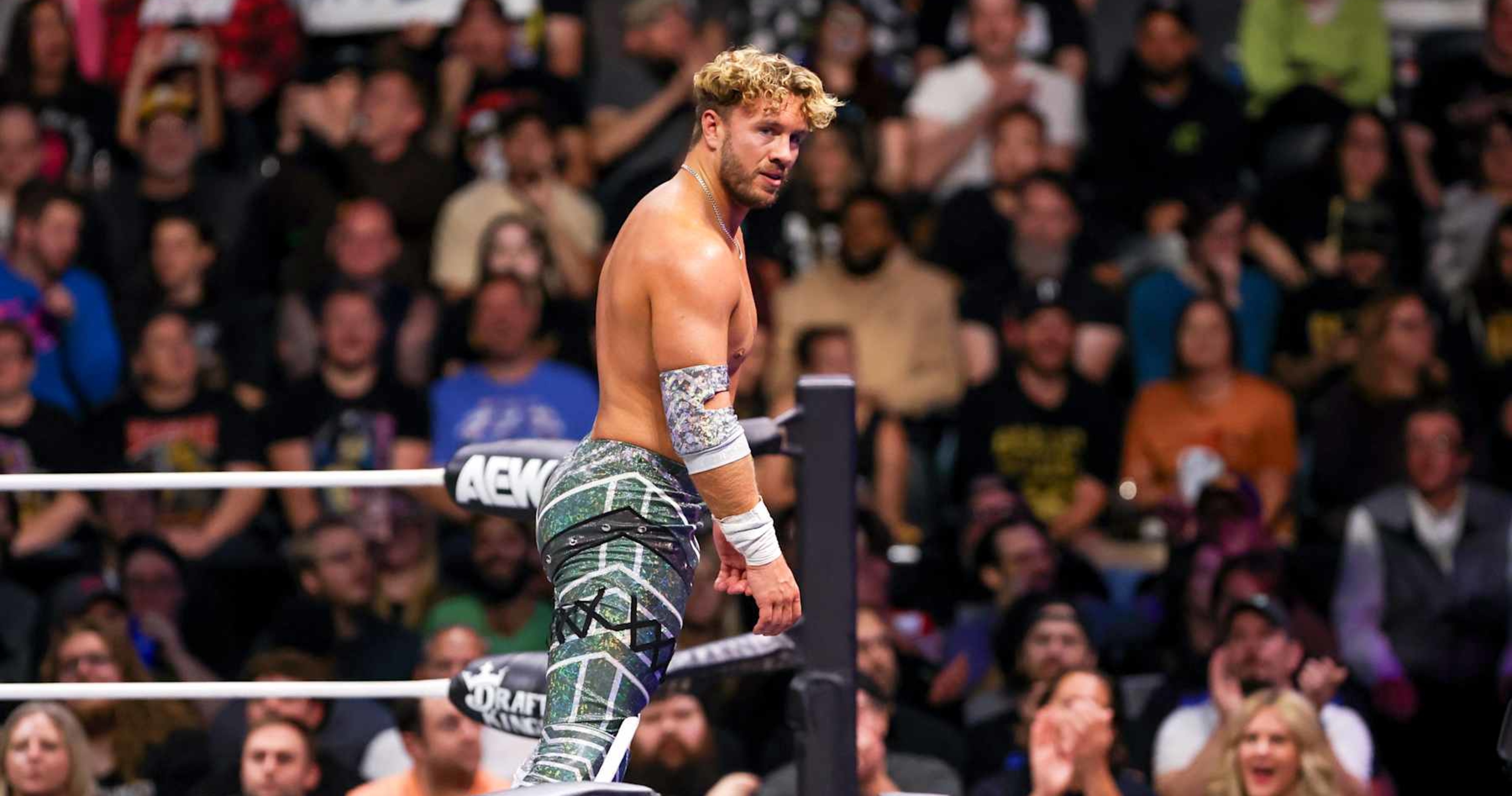Fashion
Breaking Down Rebecca Minkoff’s Fashion Impact Before Joining ‘RHONY’

Rebecca Minkoff may be the newest star of The Real Housewives of New York City, but she’s no rookie when it comes to impact and influence.
Amid news that the designer has been shooting scenes with the RHONY cast for the upcoming season 15, Us Weekly is taking a deep dive into her prolific career.
Rebecca and her brother, Uri Minkoff, founded her namesake label in 2005 in New York City after she moved to the Big Apple at 18 years old. “I had $10,000 in savings from babysitting, bat mitzvah money that I’d never touched, some bonds I was given,” Rebecca told CNBC in June 2021.
She quickly blew the funds on her first collection — but the decision was not in vain. Her first design, the Morning After Bag, has since become a fan favorite and helped solidify her edgy but feminine aesthetic. “The one that started it all,” Rebecca fondly refers to the piece, per the brand’s website. (The purse features a slouchy silhouette with a top handle and crossbody strap. It’s spacious enough for a laptop and is accented with brass hardware.)
In the years that have followed, Rebecca Minkoff has become a go-to choice for leather goods. In 2019, Rebecca said that the brand had “north of $100 million” in gross sales, per CNBC. In February 2022, she sold the company for between $13 million and $19 million to Sunrise Brands. She maintains her role as chief creative officer.
So, what makes Rebecca and her new association with RHONY so relevant? In addition to her trendy and chic offerings, Rebecca has centered accessibility, female empowerment, classic designs, relatability and inclusivity.
Accessibility
In a sea of endless high-fashion brands, Rebecca Minkoff leans on the more affordable side. She has become an industry leader in accessible luxury items. Her prices range from $50 to $500.
Female Empowerment
In 2018, Rebecca launched the Female Founder Collective — alongside Alison Koplar Wyatt — with the intent to support, develop and elevate female founded and women-owned businesses. The organization offers programs, grants, resources and community to help women maintain entrepreneurship or launch ventures.
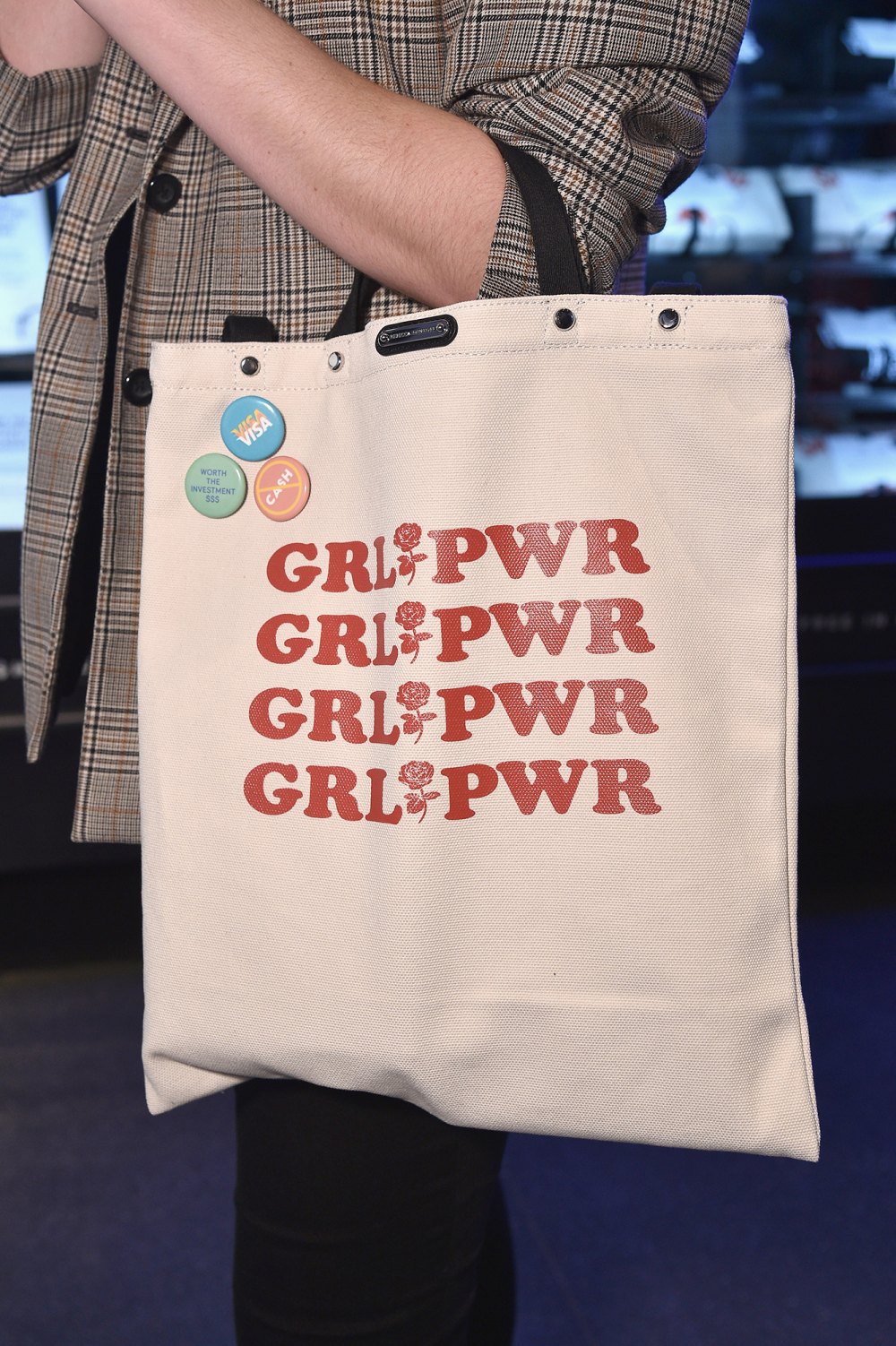
“I was tired of hearing about the wage gap. I said to myself, ‘How do I get women to make more money?’ Ali and I put our heads together, and we said, ’It’s education, community and access to learn all the hard and unsexy stuff of business.’ We’ve grown the community to over 25,000 women-owned businesses,” Rebecca said during a March 2024 segment on New York’s PIX11 News.
Classic Designs
Rebecca’s pieces, which include bags, apparel and shoes, feature rich leathers and suedes that take shape in silhouettes that are timeless. “Effortlessness is perfectly blended with sophistication for an aesthetic that combines West Coast mentality with a Downtown sensibility,” reads a note on the brand’s website.
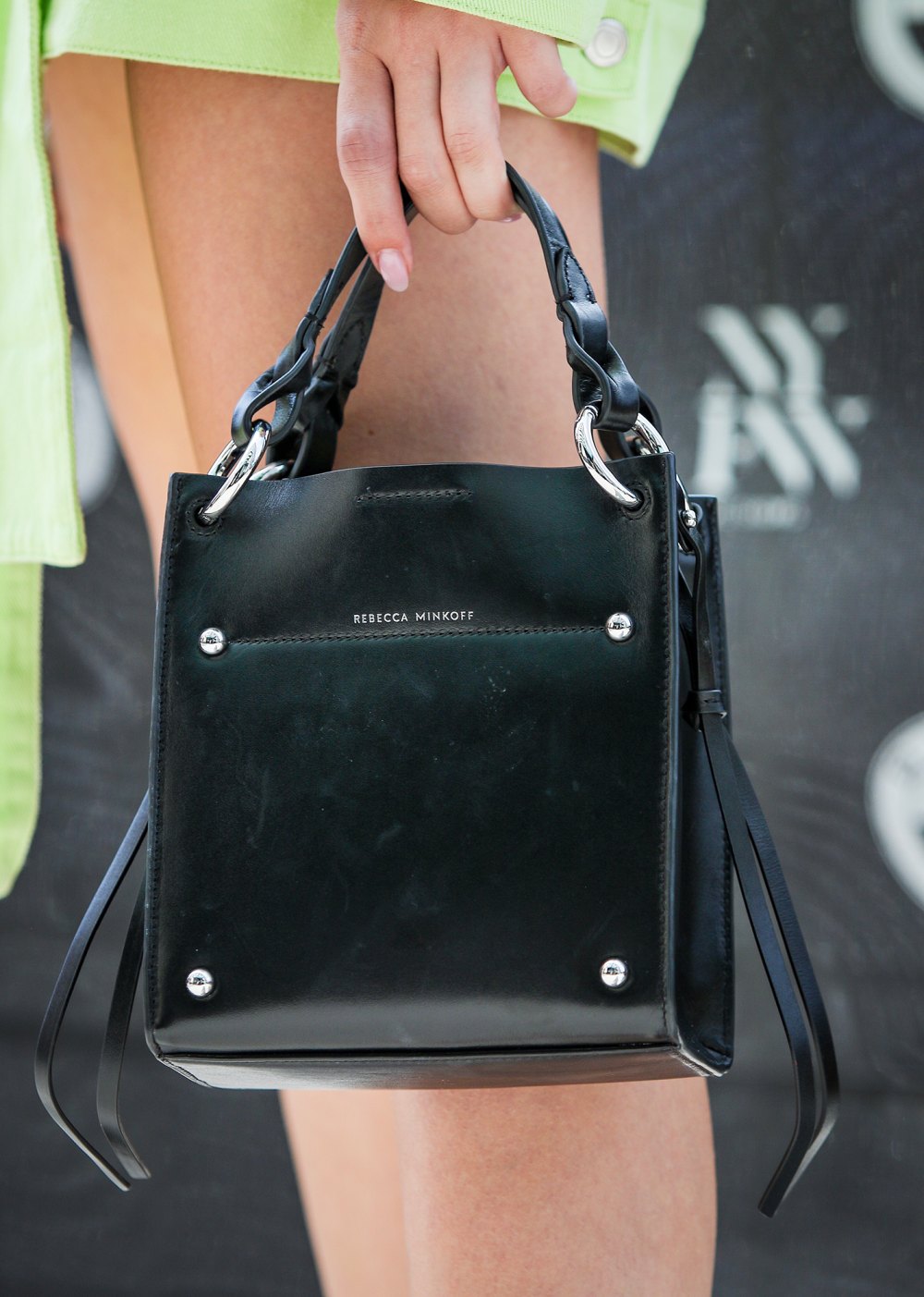
Relatability
Rebecca has been candid about her business struggles, telling CNBC in June 2021 that the COVID-19 pandemic saw her lose 70 percent of her business due to stores shuttering.
“It would have been a lot easier, a lot less work to be like, ‘Well, that was fun. Just shut everything down, we’ll be back in a year. … We chose to keep going. We said we owe it to ourselves,” she told the news outlet.
At the time, she pivoted to talking directly with shoppers through her podcast, “Superwomen,” as well as on social media in the form of daily videos that offered styling tips.
Rebecca is also a mom. She shares four children with her husband, Gavin Bellour.
Inclusivity
In all of her shows and presentations, Rebecca’s models are diverse. She taps women from different races, backgrounds, sizes and shapes.
“I am extraordinarily proud that over 50 percent of our staff are people of color. I think what Aurora James did with the 15 Percent Pledge — that anyone can get behind — is important,” Rebecca said during a panel with Fashion Innovation in October 2020.
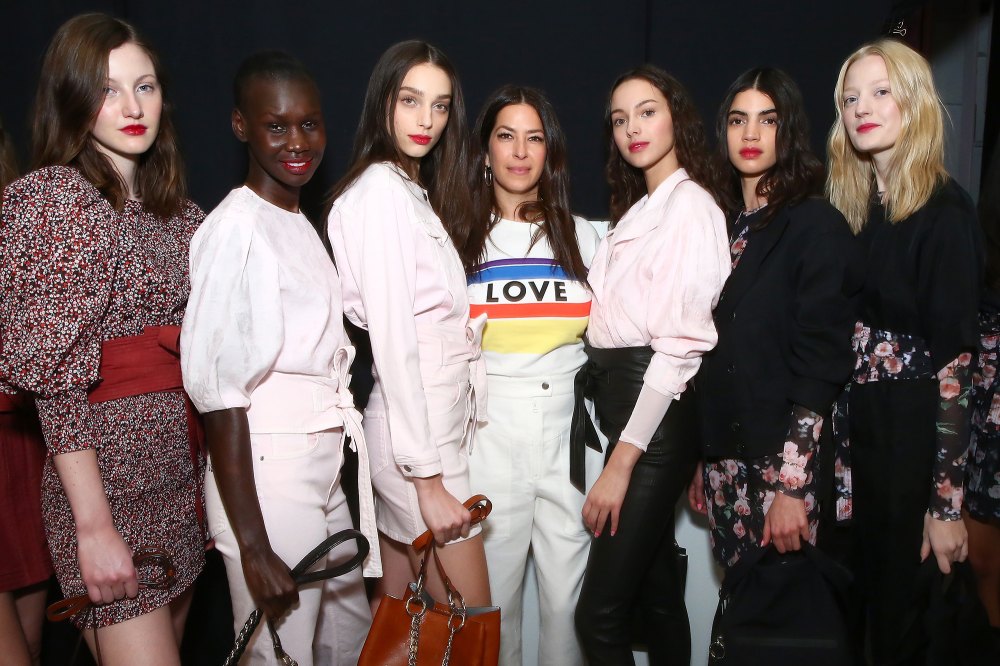
She continued, “How do I allot 15 percent of my vendors, cleaning supplies, whoever to be funded to Black businesses. It’s showing diverse talent whether it’s podcasts or Instagram Live. It’s taking a 360 approach, not because it’s the ‘right’ thing to do but it’s proven statistically that if you want a better business you need to have people that don’t look like you at the table.”




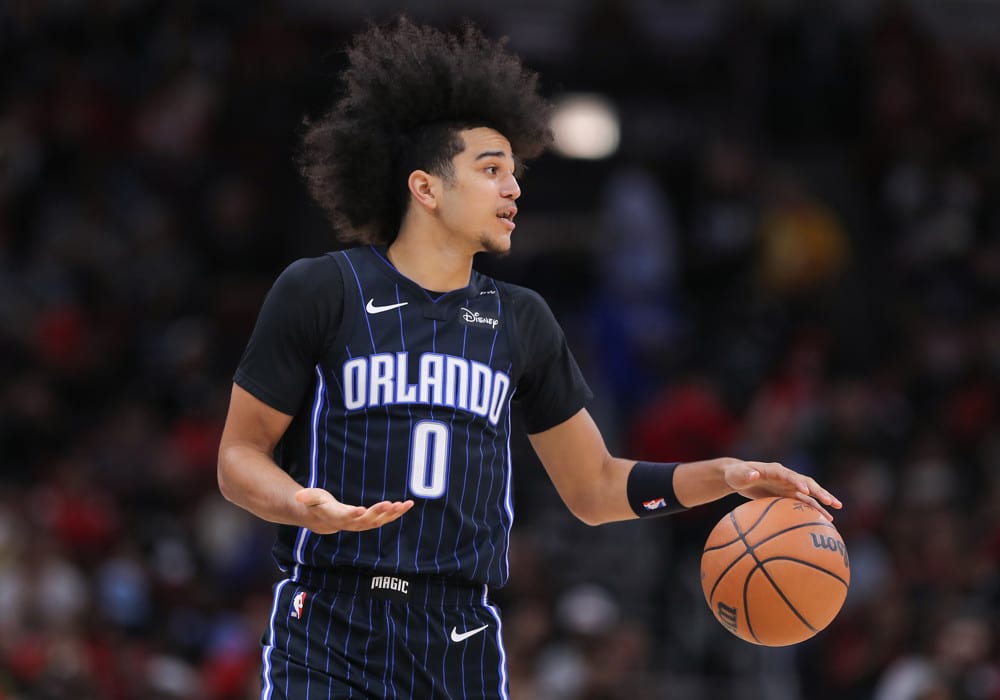



:max_bytes(150000):strip_icc()/mom-embraced-solo-travel-late-in-life-tout-826784213bfd4a988a7f807609690a03.jpg)
